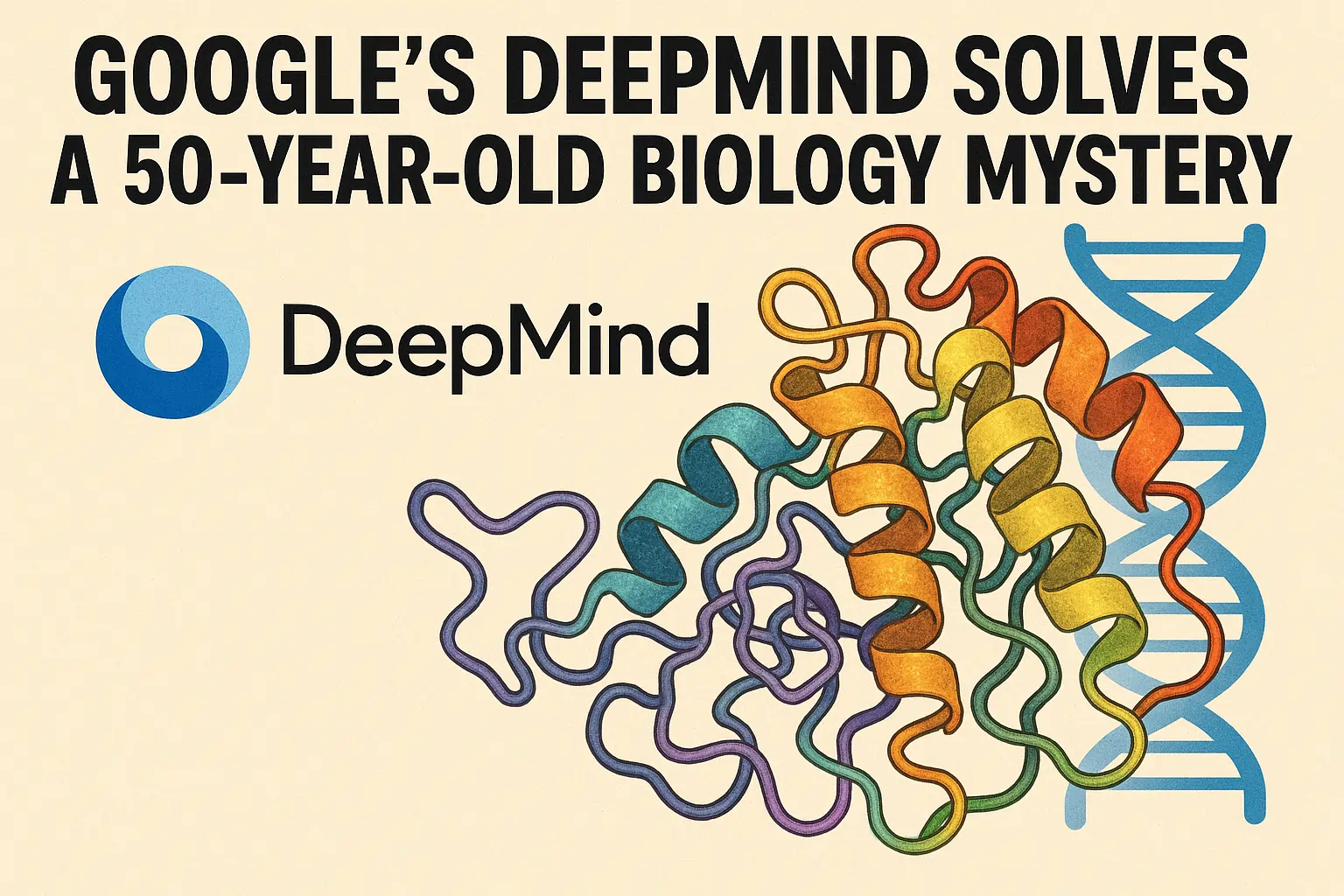Google’s DeepMind Cracks Biology’s Greatest Mystery – How It Will Change Medicine Forever
One of the most entangled questions in biology had taken scientists 50 years to figure out: predicting how proteins adopt their 3 dimensional shapes. The protein folding problem was at one time a very big mystery, but artificial intelligence has cracked this code not even the humans were able to cover up.
In a major advance, DeepMind, an AI arm of Google, created the AI called AlphaFold, which can know the structure of a protein with almost 100 percent precision. The implications are mind numbing: the discovery has the possibility of changing the face of medicine, drug development and how we understand life itself.
Why Protein Folding Matters
Proteins are the building blocks of life. Every cell in our body relies on them to:
✔ Fight infections (antibodies)
✔ Digest food (enzymes)
✔ Send brain signals (neurotransmitters)
Proteins however are of no use unless they fold into the right 3D structure. Diseases such as Alzheimer, Parkinson, and cystic fibrosis are the results of misfolded proteins. It took years to study a single protein by using expensive and time-consuming experiments (such as X-ray crystallography), and scientists had been doing so, on and off, for decades.
AlphaFold changed everything.
The AI That Solved a 50-Year-Old Puzzle
In 2020, DeepMind rocked the scientific world when its AlphaFold technology successfully solved the protein structure of thousands of individual proteins in a worldwide competition. It had mapped out:
🔬 200+ million proteins (nearly every known one)
⚡ In minutes per prediction (vs. years in a lab)
💻 For free (data publicly available)
Researchers worldwide are now using AlphaFold to:
-
Design new drugs (e.g., for malaria, cancer)
-
Study genetic diseases (like muscular dystrophy)
-
Develop eco-friendly materials (plastic-eating enzymes)
“This is like the Human Genome Project, but bigger,” said Dr. Ewan Birney of the European Molecular Biology Lab.
How This Affects You: The Human Impact
1. Faster, Cheaper Medicine
The average cost of coming up with one drug is $2.6 billion by the pharmaceutical companies. AlphaFold would only reduce the expenditures by estimating what drug molecules are likely to work, and then do this before lab tests.
Real-world examples:
-
Cancer research: The AlphaFold helped the study of the TP53 protein which is associated with 50 per cent of tumors.
-
Rare diseases: Researchers decoded a mystery protein causing a fatal childhood illness in months, not decades.
2. Personalized Treatments
Just a thought, suppose one had a personalized drug designed on the DNA. With the accuracy of AlphaFold, one can expect mainstream germ therapies to treat conditions such as sickle cell anemia.
3. Ending Antibiotic Resistance
Using bacterial proteins, scientists are coming up with the next-gen antibiotics to counter the superbugs- which will save around 10 million lives annually by 2050.
What’s Next? The Future of AI in Biology
AlphaFold is just the beginning. Scientists predict AI will soon:
🧪 Simulate entire human cells
🧬 Design synthetic proteins (for clean energy, lab-grown meat)
🦠 Predict virus mutations before they emerge
“The only thing DeepMind CEO Demis Hassabis can say is, We are living in a new era of digital biology.
Conclusion: A New Dawn for Science
The advance demonstrated by DeepMind shows that with the help of AI, it is possible to improve the pace of discoveries that are not possible in the human realm. The ripples of the cure will reach billions of people in the form of disease eradication, to the pure blessed atmospheres produced by cleaning up the globe.
